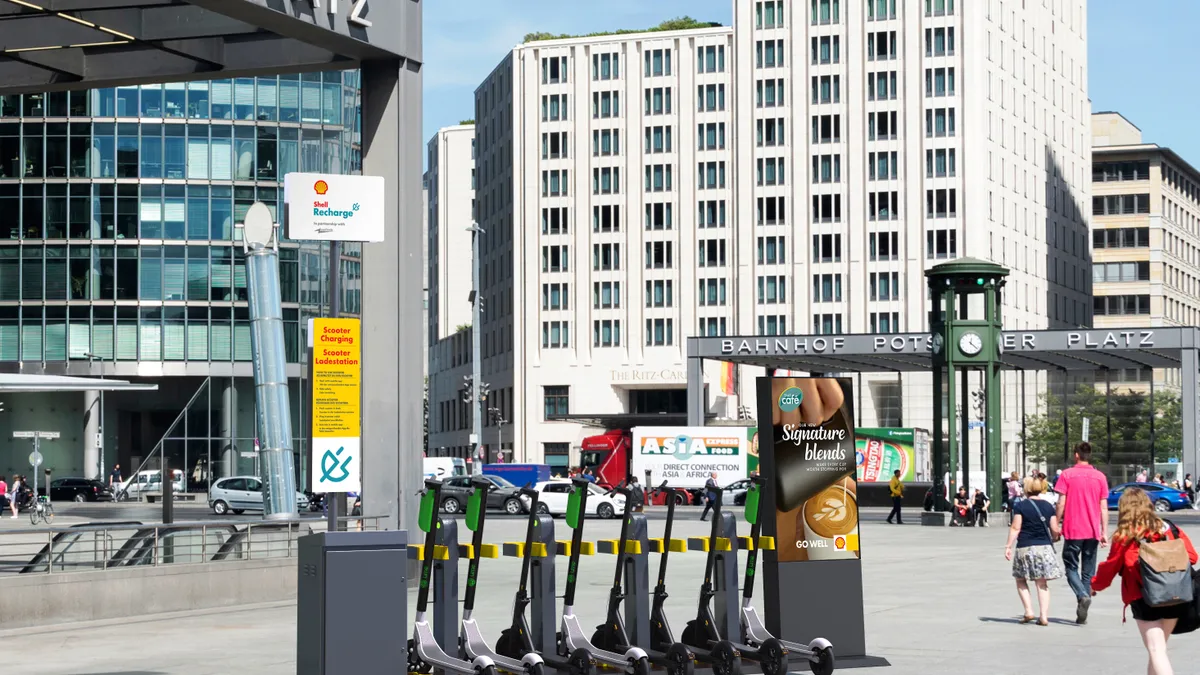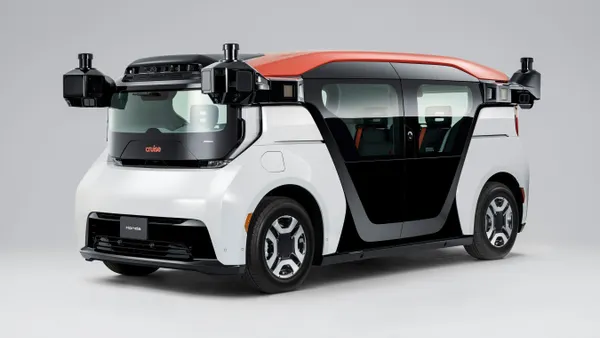Dive Brief:
- Swiftmile, the California-based micromobility charging company, is entering a licensing partnership with Shell Brands International AG that will allow Swiftmile to install chargers at retail stations in Berlin.
- Swiftmile provides micromobility hubs that allow parking and charging of e-scooters, e-bikes and mopeds. Through the partnership, Swiftmile will brand the hubs as Shell Recharge.
- The partnership will start with 25 new hubs in Berlin before fall 2021, with plans to grow to 30 stations that could accommodate 240 vehicles at once. Magnus Johansson, Swiftmile’s managing director for Europe, said there has been interest from other European cities to expand the partnership as well.
Dive Insight:
The partnership carries some irony, since Swiftmile touts its hubs as the foundation for the "gas station of the future." Shell, one of the world’s largest oil companies, has been sued by several U.S. cities and governments for its contribution to climate change, and the company’s core oil business is threatened by global support for electric vehicles (EV) and clean mobility options.
Shell has said it plans to be a net-zero-emissions business by 2050 and has expanded into offering renewable energy for business and residential consumers. The company has also said it wants to expand EV charging opportunities, with plans to deploy 500,000 charge points worldwide by 2025 and 2.5 million by 2030. In January, the company purchased ubitricity, the United Kingdom’s largest public EV charging network.
However, some experts have criticized the company for pledging to become net zero while also planning to increase its gas business by over 20% in the coming years, the Guardian reports.
Cities like San Francisco, New York and Denver are increasingly taking control of the micromobility boom by restricting the number of operators and instituting new rules around parking to limit clutter, even as doing so cuts into the fleets’ initial promise of being door-to-door possibilities.
Charging hubs have emerged as a key strategy to keeping vehicles from littering sidewalks, while also removing the need for operators to collect and charge vehicles overnight.
Swiftmile, which is focused on the infrastructure side of the micromobility boom, encourages battery standardization for light electric vehicles. The company’s micromobility hubs can be installed in parking lots or on sidewalks and have digital displays for ads and PSAs that help offset the cost to cities.
Spin launched Swiftmile-powered charging hubs in Phoenix last year, and companies like Charge have also worked to deploy hubs in major cities. As part of its micromobility program, Denver also plans to install charging hubs that would work with all operators.
With 16,000 shared e-scooters, Berlin has Europe’s largest micromobility fleet, according to Swiftmile, making it an appealing launch for the Shell partnership. Johansson said charging hubs could even make light electric vehicles an appealing option outside of dense urban settings. "There are gas stations out in smaller cities, and there’s definitely opportunity for good scooter operations there," he said.
Correction: A previous version of this article misidentified the number of total vehicles that could be accommodated by 30 Swiftmile charging stations. They can accommodate 240 total vehicles.











